Fentanyl epidemic
UNIQUE OPPORTUNITY TO HEAR
2024 HONOREE DR. MIRIAM ADELSON
2024 HONOREE DR. MIRIAM ADELSON
.png/:/rs=w:388,cg:true,m)
She became a physician and, eventually, the chief internist in an emergency room at Tel Aviv's Rokach (Hadassah) Hospital.[8] After divorcing her first husband, she went to Rockefeller University in 1986 as an associate physician specializing in drug addiction. There, she was mentored by, and subsequently collaborated for two decades with, Mary Jeanne Kreek, who was known for the development of methadone therapy for heroin addiction.[8]
In 1993, Adelson founded a substance abuse center and research clinic. She and her husband opened the Dr. Miriam and Sheldon G. Adelson Research Clinic in Las Vegas seven years later.[10] She has published numerous scientific papers on the topic of drug addiction during her career and has been a guest investigator at Rockefeller University.[9]
Research: dr. miriam adelson - Google Scholar
KEYNOTE SPEAKER DR. YNGVILD K. OLSEN, MD, MPH, Director of the Center for Substance Abuse
2024 HONOREE DR. MIRIAM ADELSON
.png/:/rs=w:388,cg:true,m)
Dr. Yngvild Olsen serves as the Director for the Center for Substance Abuse Treatment (CSAT). She has a long history of working within the addiction treatment field to expand access to care and enhance quality. She began her career as the Medical Director for the Johns Hopkins Hospital’s outpatient substance use treatment services while a full-time Assistant Professor in the Department of Medicine at the Johns Hopkins School of Medicine. She subsequently served as the Deputy Health Officer for Maryland’s Harford County Health Department, where she led a modernization of publicly funded substance use treatment services in collaboration with State and local partners. She next served as the Vice President of Clinical Affairs for the Baltimore Substance Abuse Systems, then the local addiction authority for Baltimore City. In that position, she played a central role in the expansion of buprenorphine treatment for opioid addiction in both specialty treatment and general ambulatory medical systems. Dr. Olsen has also served as Medical Consultant to the Maryland Behavioral Health Administration, as a clinical expert to the Maryland Addiction Consultation Service at the University of Maryland School of Medicine, and as an advisor on addiction interventions to the Baltimore City Health Department. From 2011 to 2021, she served as Medical Director for the Institutes for Behavior Resources/REACH Health Services, a comprehensive outpatient substance use disorder treatment program in Baltimore City.
Dr. Olsen has held numerous senior volunteer leadership positions in the field of addiction medicine. These have included vice president of the American Society of Addiction Medicine, president of the Maryland Association for the Treatment of Opioid Dependence, and president of the Maryland/DC Society of Addiction Medicine. She also has served on the boards of the National Council on Alcohol and Drug Dependence-Maryland, and Stop Stigma Now, and as a clinical expert to the Providers Clinical Support System (PCSS).
After graduating from Harvard Medical School, Dr. Olsen completed residency training in internal medicine and served as primary care chief resident at Boston Medical Center. She completed a Fellowship in General Internal Medicine at Johns Hopkins, during which time she received a Master in Public Health degree from the Johns Hopkins Bloomberg School of Public Health. Dr. Olsen has written and lectured extensively on opioid use disorder and its treatments, the stigma of addiction, the integration of behavioral health and medical care, and clinical and policy solutions to the overdose epidemic. She draws inspiration from the opportunity to provide care for people with substance use disorders as an addiction medicine specialist and general internist.
SUBSTANCE TREATMENT FOR PERSONS WITH CO-OCCURING DISORDERS
SUBSTANCE TREATMENT FOR PERSONS WITH CO-OCCURING DISORDERS

What Is a TIP? Treatment Improvement Protocols (TIPs) are developed by the Center for Substance Abuse Treatment (CSAT), part of the Substance Abuse and Mental Health Services Administration (SAMHSA) within the U.S. Department of Health and Human Services (HHS). Each TIP involves the development of topicspecific bestpractice guidelines for the preven tion and treatment of substance use and mental disorders. TIPs draw on the experience and knowledge of clinical, research, and administrative experts of various forms of treatment and prevention. TIPs are dis tributed to facilities and individuals across the country. Published TIPs can be accessed via the Internet at http://store.samhsa.gov. Although each consensusbased TIP strives to include an evidence base for the practices it recommends, SAMHSA recognizes that behavioral health is continually evolving, and research frequently lags behind the innovations pioneered in the field. A major goal of each TIP is to convey "frontline" information quickly but responsibly. If research supports a particular approach, citations are provided.
TIP 42: Substance Abuse Treatment for Persons With Co-Occurring Disorders
this is a fundraiser donations are appreciated https://www.stopstigmanow.org/donate_membership/
USE THIS QR CODE TO PARTICIPATE
DR. INGVILD K. OLSEN - DIRECTOR SUBSTANCE ABUSE TREATMENT
Check out this great video
Opioid Misuse is a treatable Disease
I Wonder What Primm Would Have Said About Co-Occurring Addictions Today?
aTTY. tHOMAS r. rAFALSKY SPEAKS ABOUT A.R.T. MODEL
Check out this great video
STOP Stigma Now. org affiliated people
Mark
Joyce
Andrea About the late Dr. Beny J. Primm who assisted the founding of Stop Stigma Now Org
Give customers a reason to do business with you.
see stop stigma now . org

lINK TO STOP STIGMA NOW, ORG NEWSLETTER
Welcome to New York ShoutOut Newspaper
Stop Stigma Now Board of Directors
STOP STIGMA NOW (SSN) is a group of professionals affiliated with opioid use disorder (OUD) research or treatment, and people with lived experience and their families, dedicated to ending the harmful stigma affecting medication treatment of people with OUD.
Some members of our Board of Directors are people who have worked with Dr’s Vincent Dole, Maria Nyswander and Mary Jeanne Kreek, the developers of the first effective OUD medication treatment in the late1960’s and early 1970’s.
Executive Committee
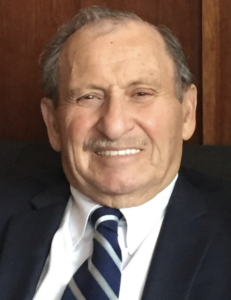
Sy Demsky
Co-President
Sy Demsky is also President of the Board of National Development Research Inc. (NDRI-USA.) He collaborated on eight grants and studies with NDRI. Sy was the Director of The Mount Sinai Hospital’s Narcotics Rehabilitation Center from 1970 to 2001 when he retired. From 1975 to 1999 he was the President and CEO of Auto Assess, Inc., a computerized testing company in the field of addiction.
He is the owner and President of Sy Demsky & Associates, a Health Care & Consulting Company. Sy was a member of the Governor’s Advisory Council on Substance Abuse, and the founder and first President of the New York State Committee of Methadone Program Administrators (COMPA.) He has received many distinguished awards, including the Dole/Nyswander Award for outstanding lifetime service to the addiction field, and the Unsung Hero Award from the notable Carron Foundation.
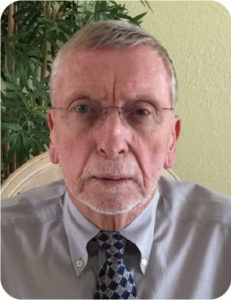
John Phillips
Co-President
John F. Phillips is the Co-Founder of Creative Socio-Medics Corp. (now Netsmart Technologies) the leading patient information company in Behavioral Health and Addictions. Started in 1968 it is one of the oldest software companies in the world. John was responsible for hundreds of information systems projects over the forty years before his retirement, and is now responsible for systems and automation in SSN.
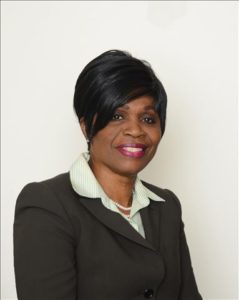
Valerie C. Walters
President & Chief Executive Officer at the Lower Eastside Service
Center, Inc. (LESC)
Walters joined LESC more than 22 years ago as the Vice President of Human Resources. During her tenure as VP she was responsible for all the human resources functions and serving as principal advisor to the CEO and leadership team on organization design and development, goal setting, policy development, risk management and strategic implementation in support of achieving corporate objectives and business growth.
In 2014 she became the President & CEO at LESC.
Under her leadership, permanent supportive housing provided by the agency has increased, providing additional housing for 98 homeless individuals. Organizational budget has increased over 16 million and six (6) programs were added to the LESC roster, to include early HIV intervention, a Women’s Wellness Program, expanded services to the population to include care coordination and affiliation with a FQHC to provide HIV testing and primary care services. More recently the state approved LESC as a lead for a Behavioral Health Care Collaborative (BHCC) to participate in the New York State Behavioral Health Value Based Payment Readiness Program (BH VBP).
Prior to joining LESC, she held positions at SCI Business School/WAE Corporation as Assistant Administrator and Director of Student Services and Director of Vocational Services at American Business Institute (ABI). Walters was a high school Mathematics teacher for 15 years.
Ms. Walters earned her M.B.A. in Organizational Behavior and Management at C.W. Post Long Island University, a B.A. in Business Management from Lehman College, and holds certifications in Human Resources, Executive Leadership Support for Nonprofit Management, and Methods of Occupational Instruction. B.A. in Education.

Susan Staats Combs, M.Ed, LPC, NCC, PhT
2nd Vice President
Susan Staats Combs has worked in the field of Opioid Use Treatment since December of 1993.
She has owned and operated methadone clinics and has been the President of her Alabama Methadone Association (2013-present) She has Co-served on the National AATOD Board as a Alabama Representative for many years. She has served on Alabama Governors Opioid Council since the origination (2016). She serves on the Alabama Substance Abuse Coordinating Committee appointed by the Governor, and serves on the Alabama Opioid Data, Treatment and Workforce Committees. She has worked tirelessly to help make sure persons have access to treatment and reduce stigma in Alabama. She advocates for patient rights within the judicial and medical system on regular basis to assure access and educate the systems all which saves lives. She is American Red Cross Volunteer Instructor (1984 -present) and Children’s Hospital of Alabama Volunteer (1990- present) .
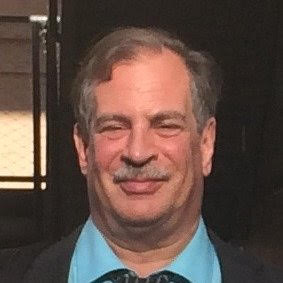
Steven Rabinowitz
Co-Secretary
Retired at the end of 2016 after 30 years of service at NY State Office of Alcoholism and Substance Abuse Services (OASAS), where he spent the last 12 years as the Director of Downstate Field Operations, and now works as Special Projects Coordinator for Argus Community, as well as an independent consultant in the addiction services field. Besides the Stop Stigma Now Board of Directors he also serves on the advisory groups for End Overdose NY and Our Jewish Recovery. He is a native of New York City.
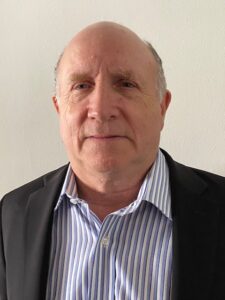
David Lichentenstein
Treasurer
David Lichtenstein is the Stop Stigma Now Treasurer and is on the Executive Board. He is also
on the Website and Social Media Committee. Mr. Lichtenstein is a professional engineer in the
State of New York. He retired after 30 years as an electrical construction engineer.
Board Members
Phillip Appel, PhD Valentin Bonilla, PA, H. Westley Clark, MD, JD, MPH Juan Colon David Cruz Brenda Davis, MSW Sharon Dow Robert Krauss Robert Lubran, MPA Maria Pasceri Gideon Rabino Desire Renaud, EdD Robert Sage, PhD Joycelyn Woods
Advisory Committee
- Joseph A. Adams MD, FASAM
- W. Calvin Anderson MS. ED.
- Melissa Freeman, MD
- David Hutson
- Steven Magura, PhD
- Denise McIntee
- David M. Novick, MD
- Philip Paris, MD
- Andrew Rosenblum, PhD
- Joan Standora, PhD
- Alex Wodak, MD
In Memoriam
- Kathleen Coughlin 2015-2019 John Galea 2013-2018
- Herman Joseph, PhD, 2002-2019
- Elizabeth Khuri, MD, 2002-2017
- Robert Newman, MD, 2002-2018
- Beny Primm, MD 2002-2015
- Barry Stimmel, MD 2002-2015
SSN representatives
SSN has representatives in the following states:
• Alabama• Arkansas• California• Georgia• Maryland• Massachusetts
Michigan• New Jersey • New York• North Carolina • Oregon• Pennsylvania • Virginia • Washington
And also, around the world in:
• Australia • Ireland • Italy • The Netherlands
If you would like to be a representative for SSN in your state or country, please let us know sending us an email with your intention. Click here
Subscribe to New York ShoutOut Newspaper
Never miss a story by subscribing to our newspaper. Get access to in-depth reporting, analysis, and opinion from our award-winning team of journalists. Sign up today and stay informed on the issues that matter most to you.
Harm Reduction Strategies
Check out this great video
SSN Interview with Leading Drug Court Judge Jeffry Tauber
Check out this great video
heart of gold... val bonilla
Check out this great video
Avi Israel and save the Michael's of the world
SPECIAL GUEST SPEAKER
AATOD 2024
Check out this great video
My Blog
YOU HAVE ONE HOUR TO HEAR THE EXPERTS DEC. 3RD FROM STOP STIGMA NOW .ORG SEE OPIOID CRISIS SECTION ON NEW YORK SHOUTOUT
This website uses cookies.
We use cookies to analyze website traffic and optimize your website experience. By accepting our use of cookies, your data will be aggregated with all other user data.